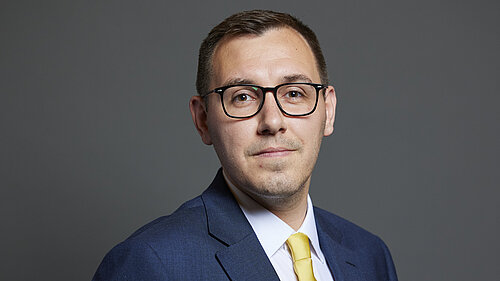Tom Gordon questions witnesses from the world of social media

Today, Tom Gordon asked expert witnesses at a meeting of the Science, Innovation and Technology Committee about mis and disinformation on social media. The members of the panel included Imran Ahmed, CEO of the Centre for Countering Digital Hate (CCDH), Dr Joe Whittaker, lecturer at the school of social sciences cyber threats research centre at Swansea University and Marianna Spring, a BBC journalist and specialist in disinformation and social media.
The meeting of the Science, Innovation and Technology Committee was part of its new investigation looking into social media, misinformation and algorithms. This specific meeting was on Algorithms, social media and the summer riots in the UK that followed the Southport murders in August.
Tom asked whether it was possible to fix mis- and disinformation online without cooperation with other countries. The response from the experts raised concerns that this would be extremely hard to achieve, due to the international nature of social media. They particularly referenced the lack of legislation around social media in the US, which has not passed any laws relating to the area since 1996.
However, they also referenced recent laws introduced in Brazil, which Elon Musk protested against and shut down X in Brazil as a result, but was then forced to back track. Whilst they did say the law wasn’t perfect, it demonstrated that social media giants can be held to account and regulated for a single country.
Commenting, Tom said:
“I’m committed to helping tackle mis- and disinformation that is so harmful to people. We must hold wealthy men like Elon Musk and Donald Trump to account in their spreading of mistruths and fundamental lies.
“This is about democracy and protecting people. We need to ensure that social media is a safe space, not one that endlessly spreads hate speech. Recent moves on Facebook and Instagram to end fact-checking are extremely concerning and not what we need. Fortunately, we can see in Brazil that it is possible to bring these giants to heel, even when they start having tantrums about it.
“Free speech is extremely important. But it’s not just a freedom, it’s a responsibility. Hate speech and spreading blatant falsehoods is unacceptable.”
ENDS
